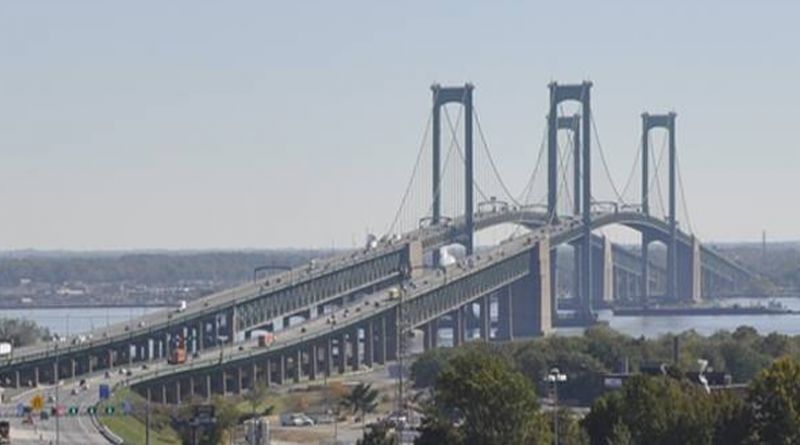Effective at 12:01 a.m. on Thursday, May 21, 2020, the Delaware Memorial Bridge Twin Span will resume collecting cash at its southbound Toll Plaza.
To reduce the risk of COVID-19 transmission, all DMB toll operators will be required to wear a face mask and gloves while collecting cash tolls. The DRBA is also supplying its collectors with face shields and has installed protective Plexiglas ‘sneeze’ guards in the toll booths.
In addition, Delaware Memorial Bridge toll booths will be sanitized between shifts and the toll shifts have been staggered to limit interaction/exposure among toll collectors. The DRBA also encourages motorists to wear a face mask as they pass through the cash lanes.
All Delaware Memorial Bridge tolls have been collected either by E-ZPass or by the temporary toll-by-mail process since March 26 when cash collections were suspended as a precaution against the spread of COVID-19. Drivers who do not have E-ZPass accounts will need to be prepared to pay with cash once cash collections resume.
The Delaware Memorial Bridge E-ZPass Customer Service Center (CSC) located in the Vincent A. Julia Building remains closed. An update regarding the CSC’s operating schedule will be posted on the DRBA website, www.drba.net, no later than 6:00 PM on Sunday, May 31, 2020. Cash customers who would like to open an E-ZPass account can contact the New Jersey E-ZPass Customer Service Center at 888-AUTO-TOLL (888-288-6865) or by visit www.ezpassnj.com.
In a related development, the COVID-19 virus has dramatically impacted traffic volumes on the Delaware Memorial Bridge. Following two traffic record setting months of January and February 2020, traffic volumes on the Twin Spans totaled 1,057,005 vehicles in March 2020, a decline of more than 24% compared to 2019 figures. In April 2020, Delaware Memorial Bridge traffic totals continued to plummet, falling more than 64% compared to last year’s numbers. Year to date, the Twin Span has registered approximately 4.6 million vehicles, a decline of nearly 25% compared to 2019 statistics.

